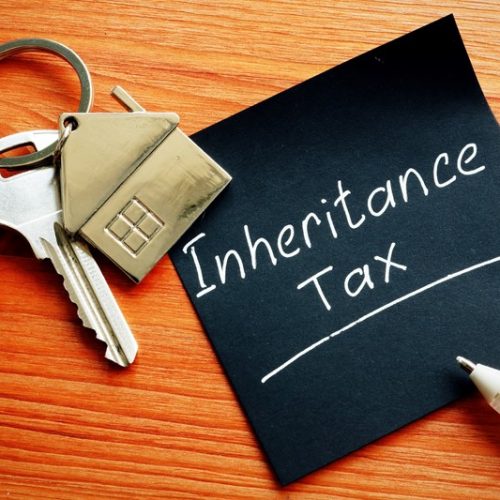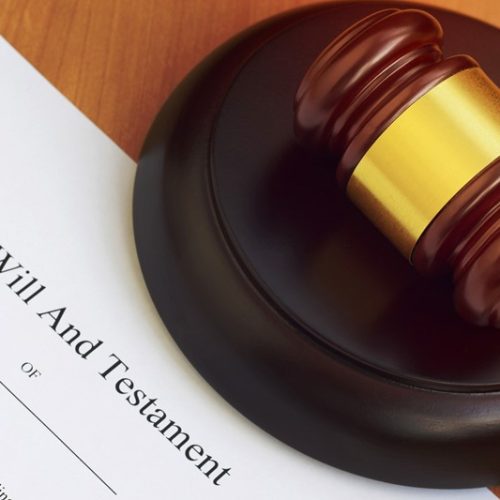

Lifetime gifts can reduce Inheritance Tax, but survival for seven years and using key exemptions like the £3,000 annual allowance are crucial to making them fully tax-free.
Most gifts made during a person’s lifetime are not immediately subject to Inheritance Tax (IHT). These are known as potentially exempt transfers (PETs) and can become completely exempt from IHT if the person making the gift (the donor) survives for more than seven years after making the gift.
If the donor dies within three years of making the gift, it is treated as if the gift was made on the date of death, and the full rate of IHT may apply. However, if death occurs between three and seven years after the gift, taper relief can reduce the amount of tax payable. The further away from death the gift was made, the lower the tax rate applied, although this only reduces the tax due on the amount above the nil rate band.
It’s important to note that taper relief does not reduce the value of the gift itself, only the tax payable, and it does not apply where the gift is within the nil rate band. Additionally, it does not lower the tax on chargeable lifetime transfers to below the amount originally assessed when the gift was made.
Each tax year, individuals can also take advantage of specific IHT exemptions that allow gifts to be made tax-free, regardless of survival for seven years.
The annual exemption allows you to gift up to £3,000 in total each tax year without adding to the value of your estate for IHT purposes. This amount can be given to one person or shared among multiple recipients. If the full £3,000 exemption isn’t used in one tax year, it can be carried forward, but only for one additional tax year.
The small gift allowance allows you to give as many gifts of up to £250 per person per tax year as you like, as long as no other exemption is used for the same individual. This is ideal for birthday or seasonal gifts made from regular income.
Additionally, you can make tax-free gifts in celebration of weddings or civil partnerships. These are exempt up to £5,000 for a child, £2,500 for a grandchild or great-grandchild and £1,000 for anyone else.

Make regular gifts from your income and avoid inheritance tax. If structured properly, surplus income gifts can support loved ones and stay outside your estate without the seven-year survival rule.
Wealthier individuals can benefit from a lesser-known but highly effective IHT exemption for gifts made out of surplus income. This is particularly useful for structured, recurring gifts such as grandparents helping with school fees or contributing to a child's living expenses.
These gifts may be fully exempt from inheritance tax if they meet three key conditions:
If these criteria are met, the gifts are immediately exempt, they do not require the donor to survive seven years, as is the case with potentially exempt transfers (PETs).
It’s important to note that part of a gift may qualify under this exemption, while the remaining portion may be chargeable or exempt under another rule. However, these rules do not apply to certain types of transfers, including:
The exemption does not override the gift with reservation rules, meaning if the donor retains a benefit from the gifted asset (e.g., continues to live in a gifted property rent-free), the gift may still be treated as part of their estate for IHT purposes.
To take advantage of the income-based exemption, careful consideration has to be given to ensure that these payments form part of the transferor’s normal expenditure and is made out of income and not out of capital. The transferor must also ensure that they are left with enough income for them to maintain their normal standard of living after giving any gifts. HMRC may request evidence such as bank statements, income records, and written intentions to support a claim for this exemption.

From April 2025, Agricultural Property Relief from Inheritance Tax now extends to land under qualifying environmental agreements. This means landowners entering long-term stewardship schemes will not lose IHT relief. From April 2026, a new £1 million limit will apply to combined APR and BPR claims—making timely planning more important than ever.
Agricultural Property Relief (APR) is a relief from Inheritance Tax (IHT) that reduces the taxable value of agricultural land and property when it is passed on, either during a person’s lifetime or after death. It allows up to 100% relief on qualifying agricultural land used for farming.
The scope of APR was extended from 6 April 2025 to land managed under an environmental agreement with, or on behalf of, the UK government, devolved governments, public bodies, local authorities, or relevant approved responsible bodies. This expansion of the relief helps to better support environmental land management without penalising landowners for switching from farming to environmental use.
The new rules will benefit individuals, estates, and personal representatives where agricultural land is shifted to long-term environmental use under formal agreements. Previously, land removed from active farming for environmental schemes could have lost eligibility for APR.
From 6 April 2026, broader reforms to Agricultural Property Relief and Business Property Relief are set to take effect. While relief of up to 100% will still be available, it will apply only to the first £1 million of combined agricultural and business property. Beyond that threshold, the relief will be reduced to 50%.

The Ministry of Justice (MOJ), together with HM Courts & Tribunals Service (HMCTS) and the Minister for Courts and Legal Services, has announced significant improvements in probate waiting times. Probate is a legal process through which a deceased person’s will is validated and is the starting point for the distribution of funds to beneficiaries.
According to newly published data, the average waiting time for probate in December 2024 was just over four weeks. This represents a sharp reduction from 12 weeks at the close of 2023 and more than eight weeks at the end of June 2024. This achievement is part of a plan to address the backlog of cases that accumulated as a result of the Covid-19 pandemic by recruiting additional staff.
Approximately 80% of grant applications are now processed online, with digital submissions typically taking just over two weeks to complete. For applicants who submit their documents without complications, probate can often be granted in under a week. Meanwhile, the processing time for paper applications has been reduced from more than 22 weeks to just under 15 weeks.
The Minister for Courts and Legal Services remarked:
'We know that handling probate can be tough for families at a difficult period in their lives. That is why so we’ve worked hard to reduce delays and make the process easier.
By cutting wait times and going digital, we’re ensuring people receive the support they need quickly at what can be a challenging time.
We’re getting public services back on their feet again as part of this Government’s Plan for Change.'

Inheritance Tax (IHT) impacts estates over £325,000, with rates of 40% on death and 20% on certain gifts. A 36% reduced rate applies if 10% of the estate is left to charity. Executors must value estates and may need to file tax returns for the deceased and their estate.
The current IHT nil rate band is £325,000 per person, below which no IHT is payable. This is the amount that can be passed on free of IHT as a tax-free threshold.
A reduced rate of IHT of 36% (reduced from 40%) applies where 10% or more of a deceased’s net estate after deducting IHT exemptions, reliefs and the nil rate band is left to charity.
In order to ascertain whether or not IHT is due, the personal representative (an executor or administrator) of the deceased must value the deceased's estate. The personal representative is legally responsible for dealing with the deceased’s money, property and possessions (their estate). As part of this process, a tax return for the deceased may be required.
This could be: